
Research Professor @NYU @CSMaP_NYU, @Georgetown MDI. Past: @Twitter, Acronym, @Facebook, @PewResearch, @Stanford.
How to get URL link on X (Twitter) App

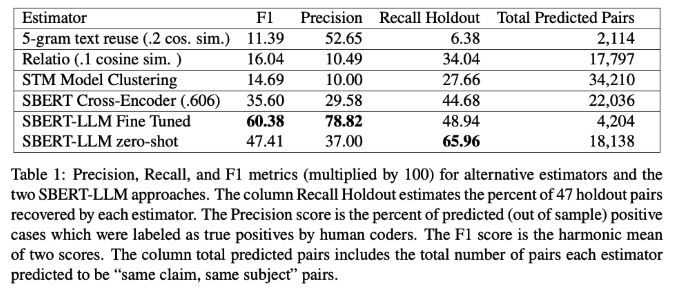
 This work was with my 1st co-author Hannah Waight (not on X) along with @AntonShirikov @mollyeroberts @Jonathan_Nagler @j_a_tucker @j___greenfield @m_dot_brown @aslett_kevin
This work was with my 1st co-author Hannah Waight (not on X) along with @AntonShirikov @mollyeroberts @Jonathan_Nagler @j_a_tucker @j___greenfield @m_dot_brown @aslett_kevin
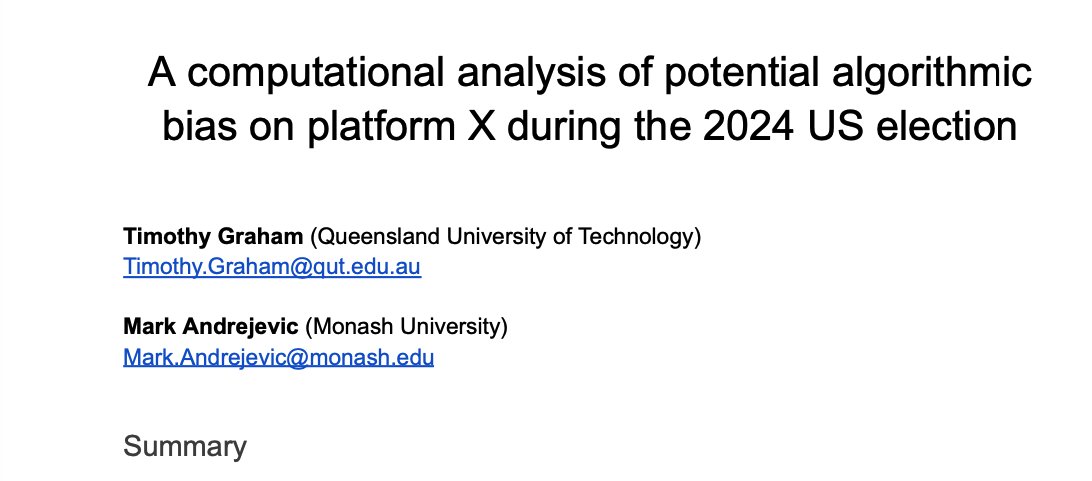
 1. It's very likely that *something* in Twitter/X's home-timeline ranking system (HTRS) changed in July 2024.
1. It's very likely that *something* in Twitter/X's home-timeline ranking system (HTRS) changed in July 2024. 
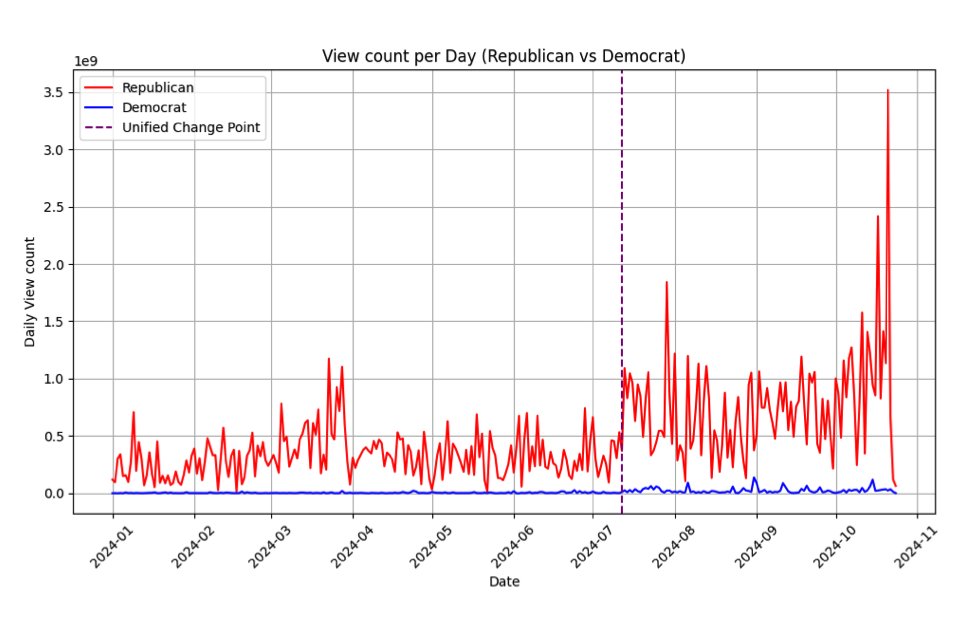
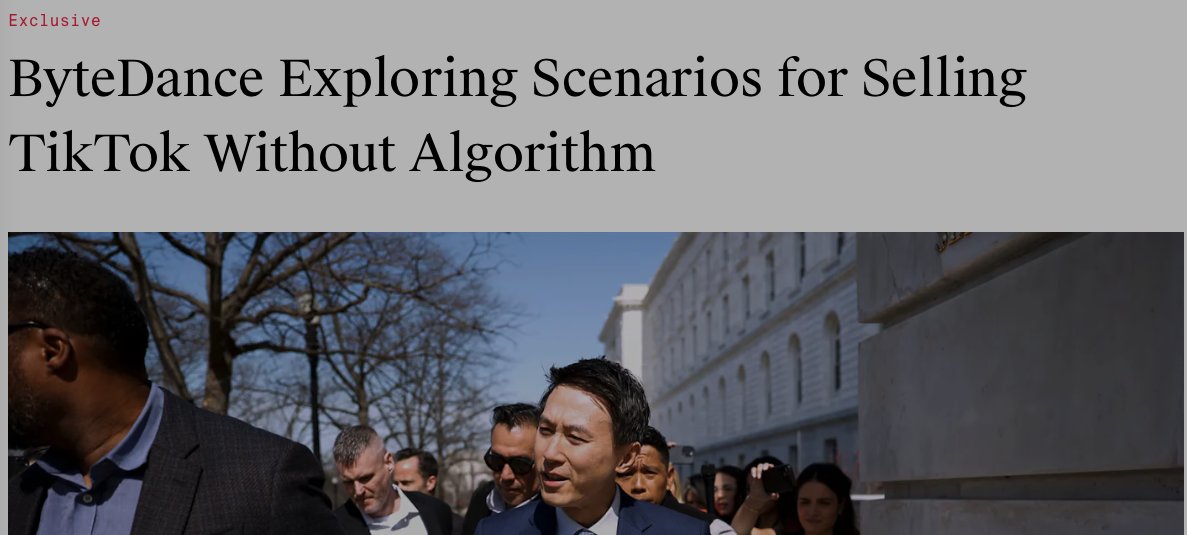
 The media talks about TikTok's algorithm as if it's the company's secret sauce. Now, we don't technically know exactly how it works but here's the thing: these recommender systems, including Facebook, Instagram, and especially Reels, they are all quite similar under the hood.
The media talks about TikTok's algorithm as if it's the company's secret sauce. Now, we don't technically know exactly how it works but here's the thing: these recommender systems, including Facebook, Instagram, and especially Reels, they are all quite similar under the hood.

 2/ Key point 1: González-Bailón et al 2023 claim newsfeed ranking increases ideological segregation (Fig 2B). BUT that’s based on domain-level analysis. URL-level analysis (Fig 2C) shows *no difference* in ideological segregation before and after feed-ranking.
2/ Key point 1: González-Bailón et al 2023 claim newsfeed ranking increases ideological segregation (Fig 2B). BUT that’s based on domain-level analysis. URL-level analysis (Fig 2C) shows *no difference* in ideological segregation before and after feed-ranking. 


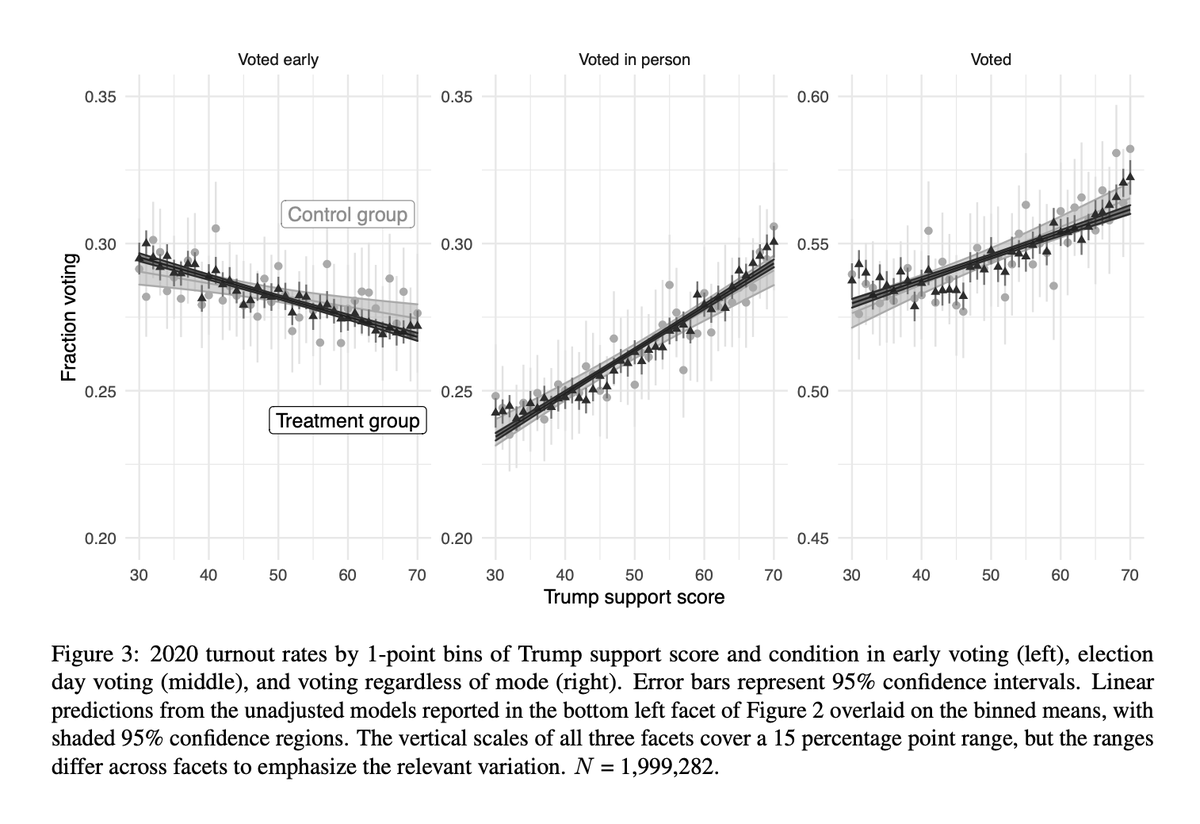
 Pundits and media commentators often assume large campaign effects, while many past studies find extremely small effects, often indistinguishable from zero. Measuring effects of the billions spent on political ads is one of the most significant challenges in the social sciences.
Pundits and media commentators often assume large campaign effects, while many past studies find extremely small effects, often indistinguishable from zero. Measuring effects of the billions spent on political ads is one of the most significant challenges in the social sciences. 

https://twitter.com/daveyalba/status/1436419732467552265?s=20First it sucks if you’ve written about the data. My heart goes out to you, and I have a sense of the work you have to do as a result. I understand there are engineers working to fix this ASAP.

https://twitter.com/kmmunger/status/1402669168353333253This is exactly why Facebook’s algorithmically sorted News Feed has prompted such fierce public debate—what we read and how we read it are governed by the interface. Most obviously: we usually see what’s at the top of our feed and almost never see what’s at the bottom.

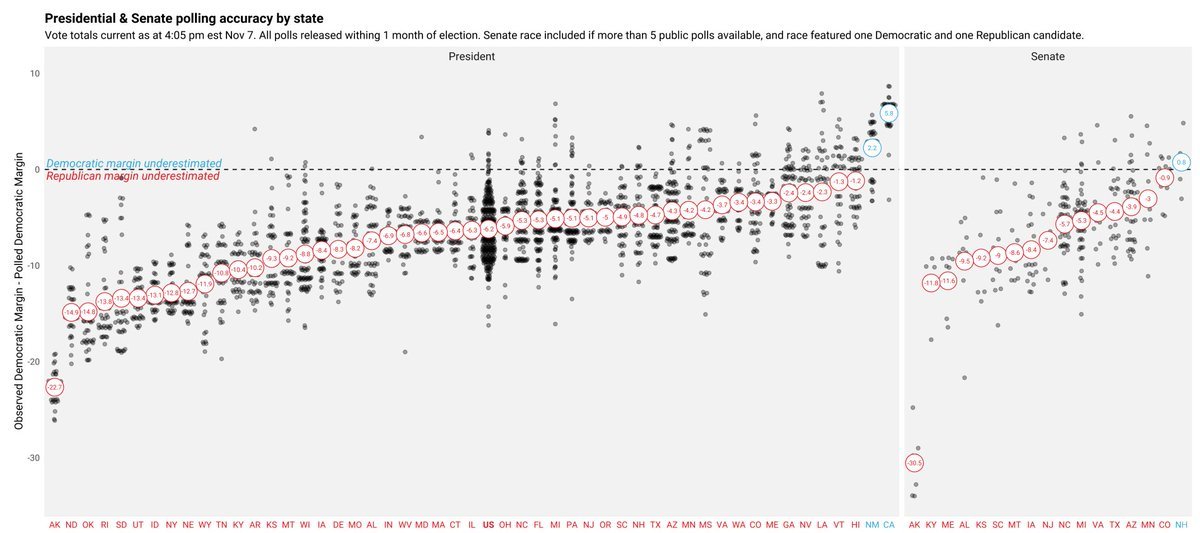
https://twitter.com/gelliottmorris/status/1324862813840560128Actual result in the SM
https://twitter.com/SolomonMg/status/1324881084014874626
https://twitter.com/Channel4News/status/1310584937356103686There is no mention of how this voter file was attained. There's only mention of a "leak."
https://twitter.com/gelliottmorris/status/1304532644965867523They give legitimacy to right wing conspiracy theories by providing the framing, narrative structure, and (incomplete + misleading) set of facts. Social media is a reflection of this.

https://twitter.com/kevinroose/status/1299109078380081152Crowdtangle data describes *page posts and engagement therein*. But what matters much more are URLs shared with friends in personal posts, NOT reshares of page content.